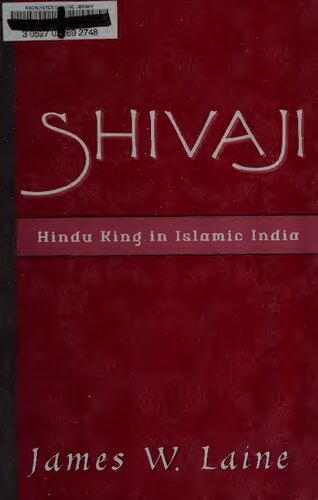

Most ebook files are in PDF format, so you can easily read them using various software such as Foxit Reader or directly on the Google Chrome browser.
Some ebook files are released by publishers in other formats such as .awz, .mobi, .epub, .fb2, etc. You may need to install specific software to read these formats on mobile/PC, such as Calibre.
Please read the tutorial at this link: https://ebookbell.com/faq
We offer FREE conversion to the popular formats you request; however, this may take some time. Therefore, right after payment, please email us, and we will try to provide the service as quickly as possible.
For some exceptional file formats or broken links (if any), please refrain from opening any disputes. Instead, email us first, and we will try to assist within a maximum of 6 hours.
EbookBell Team

4.8
34 reviewsJames Laine traces the origin and development if the Shivaji legend from the earliest sources to the contemporary accounts of the tale. His primary concern is to discover the meaning of Shivaji's life for those who have composed-and those who have read-the legendary accounts of his military victories, his daring escapes, his relationships with saints.
In the process, he paints a new and more complex picture of Hindu-Muslim relations from the seventeenth century to the present. He argues that this relationship involved a variety of compromises and strategies, from conflict to accommodation to nuanced collaboration.
Neither Muslims nor Hindus formed clearly defined communities, says Laine, and they did not relate to each other as opposed monolithic groups. Different sub-groups, representing a range of religious persuasions, found it in their advantage to accentuate or diminish the importance of Hindu and Muslim identity and the ideologies that supported the construction of such identities.
By studying the evolution of the Shivaji legend, Laine demonstrates, we can trace the development of such constructions in both pre-British and post-colonial periods.